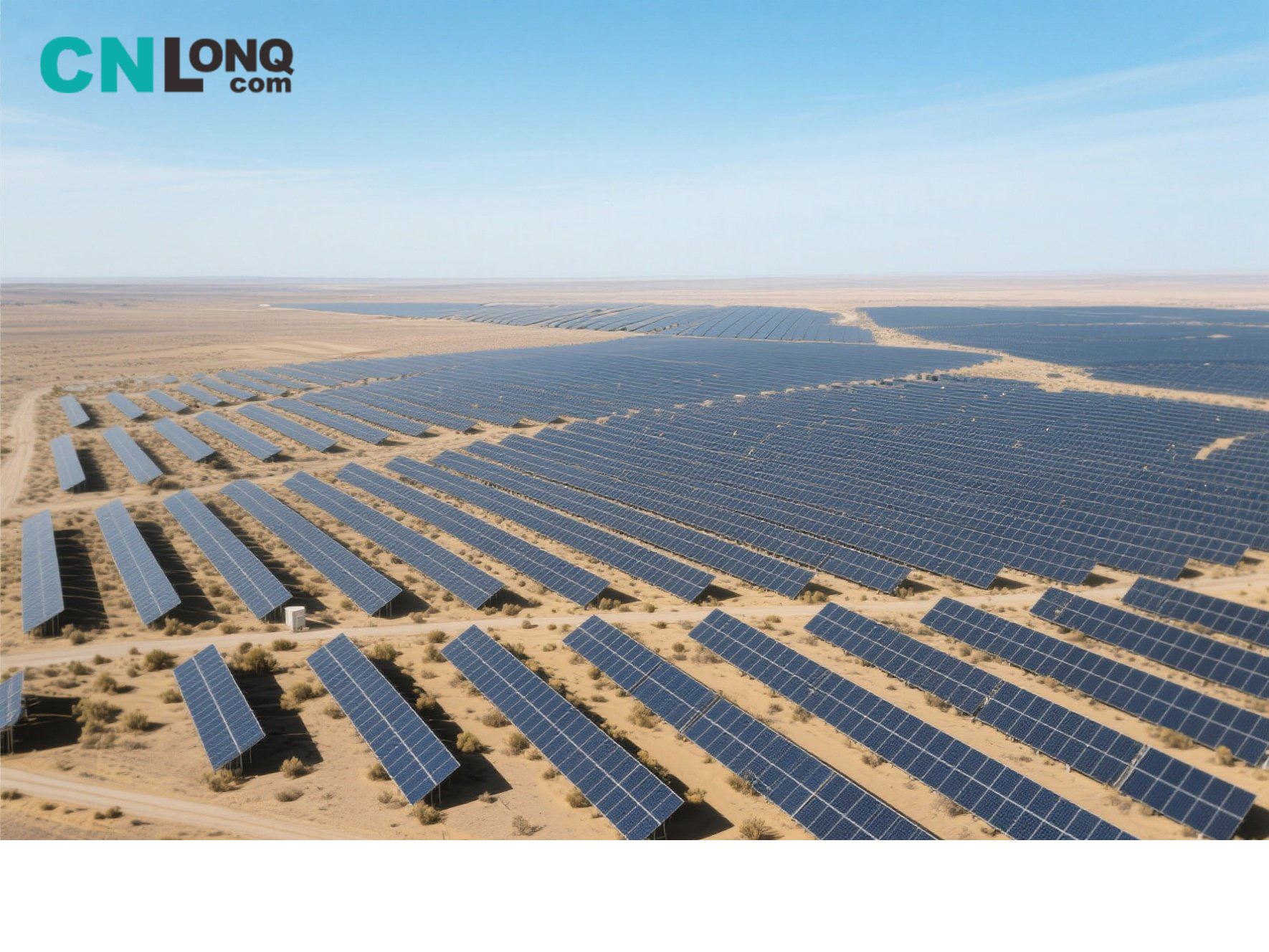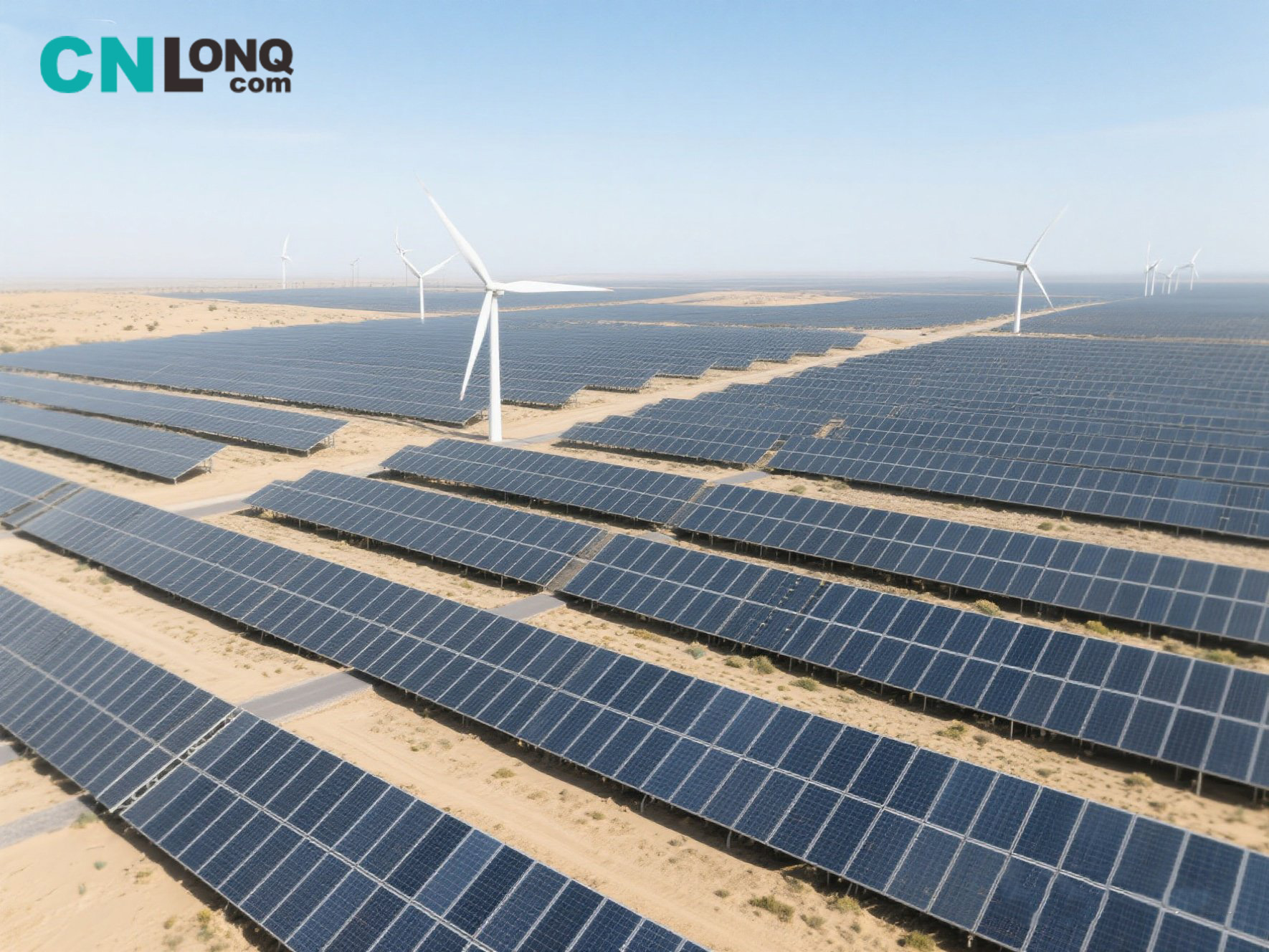
- English
- Español
- Português
- русский
- Français
- 日本語
- Deutsch
- tiếng Việt
- Italiano
- Nederlands
- ภาษาไทย
- Polski
- 한국어
- Svenska
- magyar
- Malay
- বাংলা ভাষার
- Dansk
- Suomi
- हिन्दी
- Pilipino
- Türkçe
- Gaeilge
- العربية
- Indonesia
- Norsk
- تمل
- český
- ελληνικά
- український
- Javanese
- فارسی
- தமிழ்
- తెలుగు
- नेपाली
- Burmese
- български
- ລາວ
- Latine
- Қазақша
- Euskal
- Azərbaycan
- Slovenský jazyk
- Македонски
- Lietuvos
- Eesti Keel
- Română
- Slovenski
- मराठी
- Srpski језик
"Blue Ocean" Rises in Northwest China: Exploring the Green Miracle of the Country's Largest PV Power Base
2025-08-04
On the vast Gobi Desert of Guazhou County, Jiuquan, Gansu Province, rows of solar panels stretch toward the horizon like waves, forming a spectacular "blue ocean." This mega solar power station, with a total installed capacity of 1.5GW, generates enough electricity annually to meet the needs of 2 million households. Our reporter ventured into the heart of Northwest China’s photovoltaic cluster to uncover how this "barren land" has been transformed into a "green electricity factory."
I. Cutting-Edge Technology in a World-Class Solar Array
Smart O&M System
256 inspection drones and 38 cleaning robots deployed
AI fault diagnosis reduces response time to 15 minutes
Huawei’s intelligent IV diagnosis enables module-level health monitoring
Extreme-Environment Adaptations
Specially coated mounting racks withstand winds up to Beaufort scale 12
Bifacial modules installed 1.5m above ground minimize dust accumulation
Self-cleaning coating extends cleaning cycles by 30%
II. Dual Benefits: Ecology and Economy
Innovative Desert Management
Drought-resistant crops planted between arrays boost vegetation coverage to 38%
Panel shading reduces ground temperature by 4-6°C, curbing water evaporation
Integrated sheep farming (20,000 heads) creates "power generation above, cultivation between, husbandry below" system
Economic Impact
Annual electricity sales exceed ¥900 million, contributing 15% to local tax revenue
Created 2,000 jobs with average O&M salaries reaching ¥80,000
Each kWh reduces CO2 by 0.85kg; annual carbon offset equals 65,000 hectares of forest

III. "Green Electricity Highway" for West-East Transmission
Ultra-High Voltage Support
±800kV UHVDC project transmits 40B kWh yearly
"PV + storage" smoothes output curve, boosting utilization to 98%
Multi-Energy Integration
Complements nearby wind farms for balanced generation
200MW/400MWh storage station participates in peak shaving
Pilot hydrogen production project yields 5 tons daily
IV. Future Challenges & Development
Technical Priorities
Sand-resistant tracking systems
Enhanced low-temperature efficiency
Intelligent cleaning solutions for desert plants
Policy Recommendations
Refining land-use policies for desert PV
Strengthening interprovincial green power consumption mechanisms
Exploring carbon trading-PV revenue linkages
Field Observations
In the control room, a giant screen displays real-time data: daily generation has already reached 8.12 million kWh. Station manager Ma Jianjun explains: "Every module's status is now digitized—like giving the plant a CT scanner."
At dusk, the solar array glows golden under sunset light as cleaning robots glide along tracks. In the distance, new monocrystalline modules are being installed, with 500MW additional capacity planned by year-end.
Industry Perspective
"Northwest PV bases are demonstrating scale advantages," says Li Junfeng, Deputy Director of China Renewable Energy Society. "Through 'mega bases + UHV' mode, China's PV costs have fallen below ¥0.25/kWh, offering a global energy transition solution."
Per NEA data, Northwest China's PV generation surged 28% YoY in 2023, accounting for 19% of national total. With the third batch of renewable mega-bases underway, this "blue ocean" continues expanding its green footprint.




